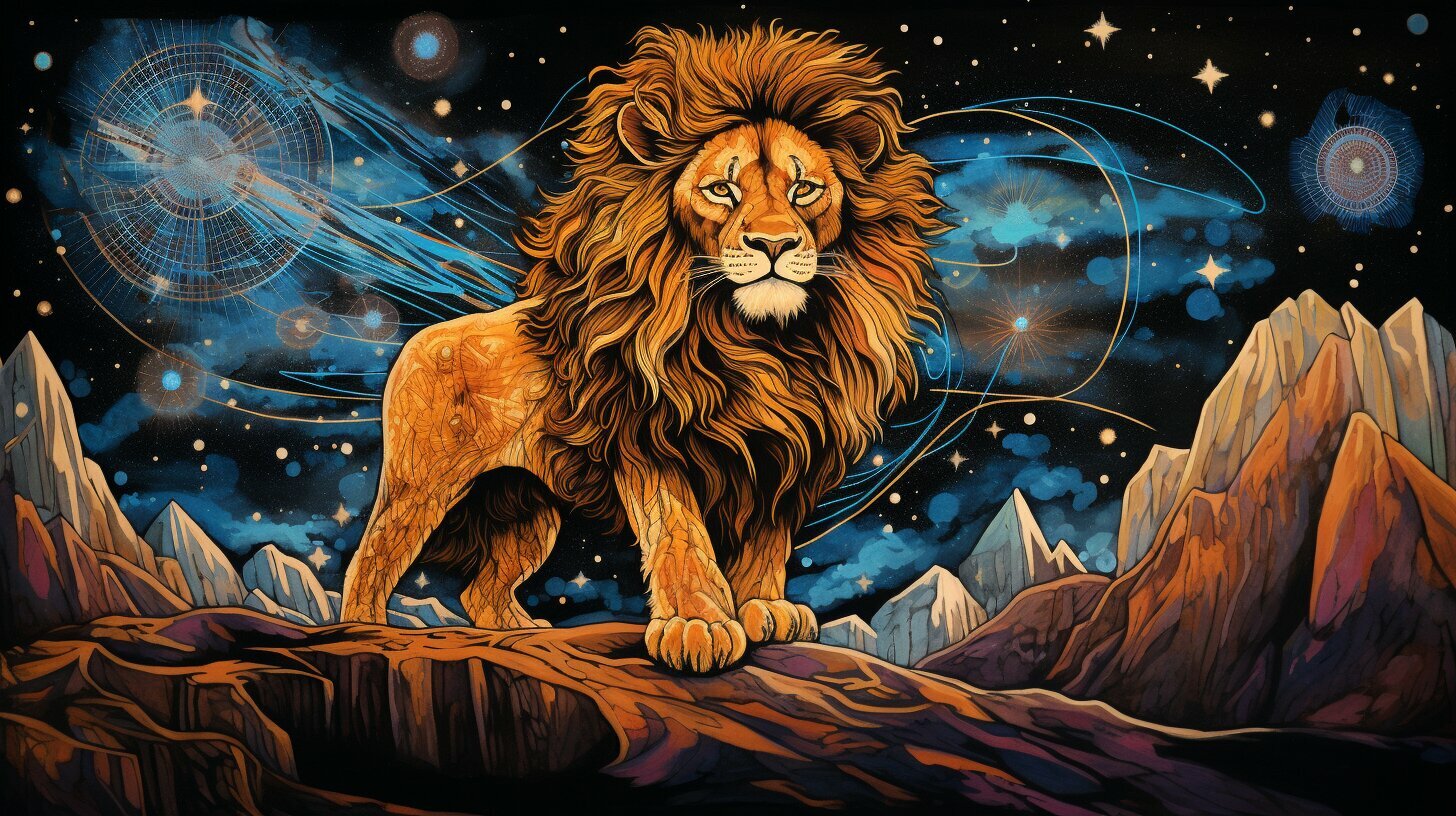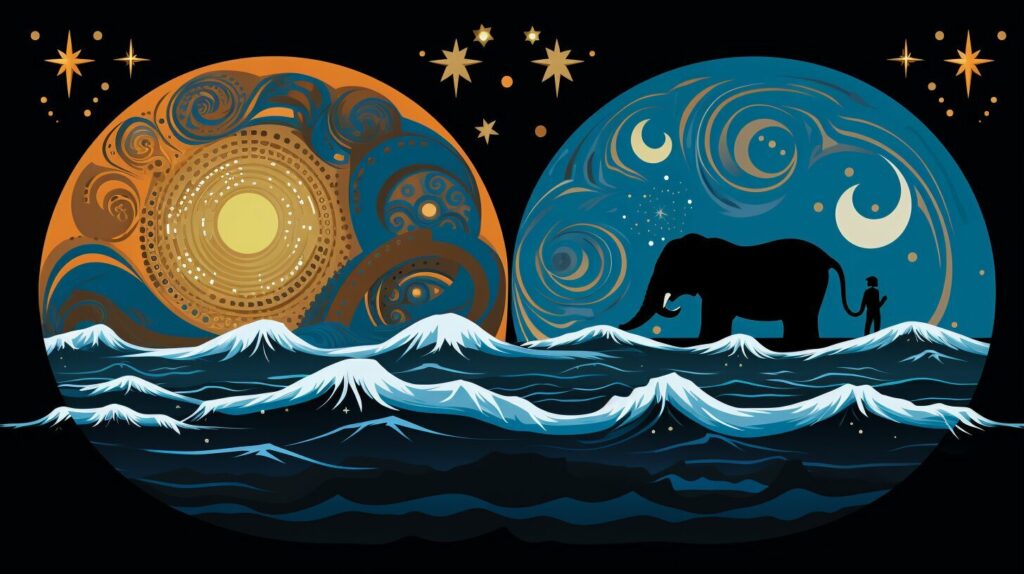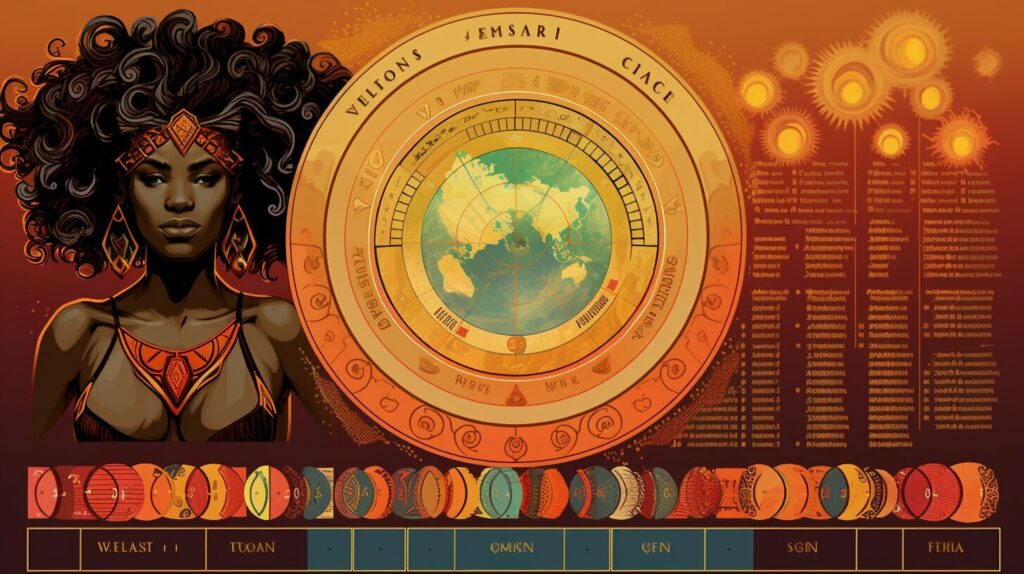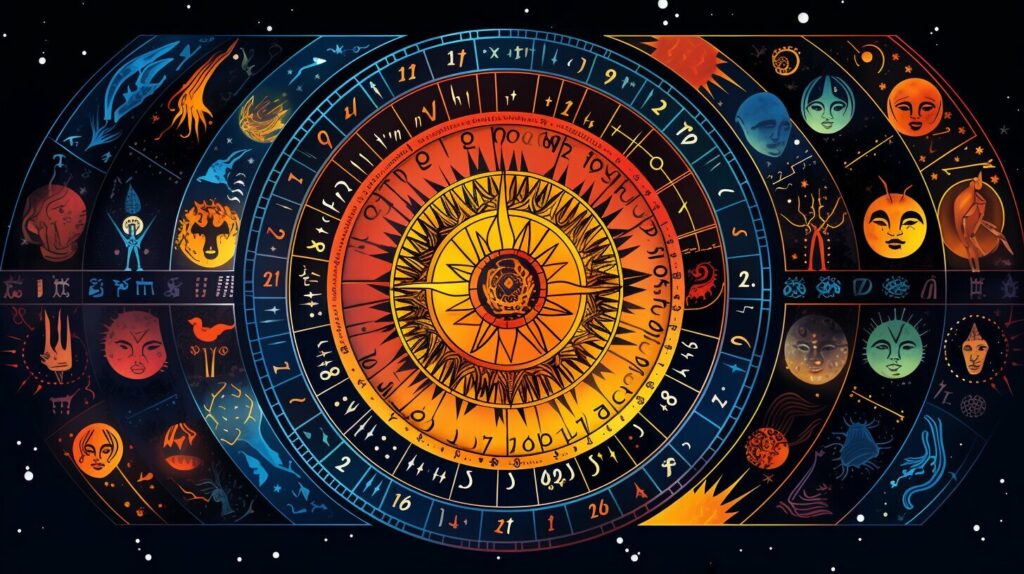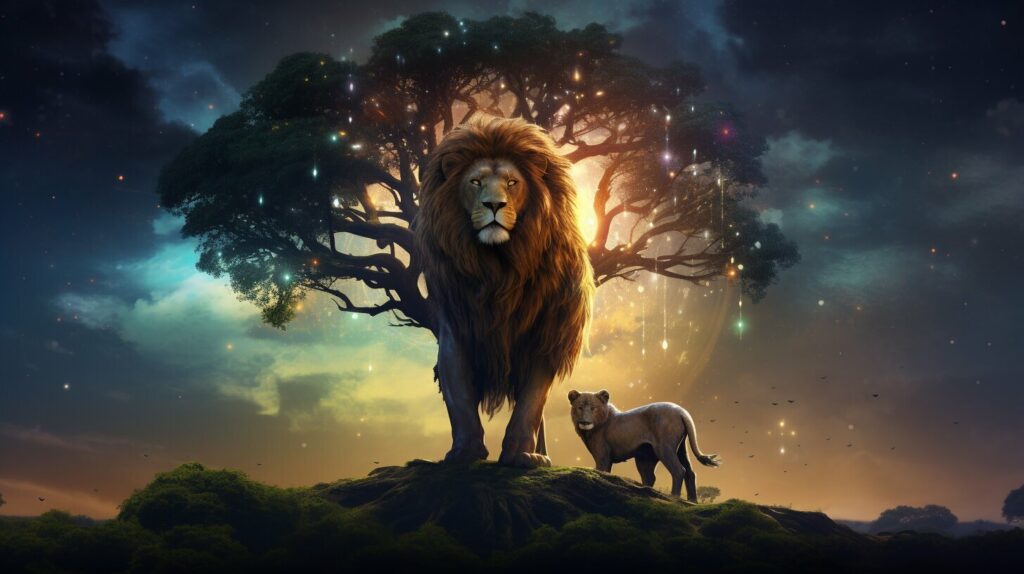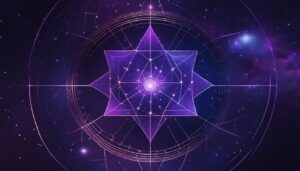African Astrology is a profound system of divination that offers valuable insights into one’s inner self and life path. Derived from a divinatory technique called Geomancy, African astrology utilizes a twelve-point system representing the signs of the African zodiac. Each sign corresponds to one of the four elements and is associated with specific dates, months, and body parts.
These signs, such as Baobab Tree, Wealth of Amber and Silver, Family, Small Services to the Neighborhood, Market, Ancestor, Judge, Kola Nut, Traveler, Distance, Child of the Word, and Harvest in the Granary, reflect different aspects of African culture and spirituality. By understanding the interpretation of African zodiac signs, individuals can gain self-knowledge and delve into the depths of their inner selves.
African astrology is believed to be the oldest known type of astrology, originating from ancient African civilizations. This divinatory system holds great wisdom and power, guiding individuals on their spiritual journey and helping them navigate life’s challenges with clarity and insight.
Key Takeaways:
- African Astrology offers valuable insights into one’s inner self and life path.
- The signs of the African zodiac correspond to specific elements, dates, months, and body parts.
- Understanding African astrology interpretation can lead to self-discovery and deepened spirituality.
- African astrology is believed to be the oldest known type of astrology.
- By embracing African astrology, individuals can navigate life’s challenges with wisdom and clarity.
Discovering the African Zodiac Signs
The African zodiac signs are deeply rooted in symbolism and animal representations, creating a unique and fascinating way to understand oneself and the universe. Derived from a divinatory technique called Geomancy, African astrology utilizes a twelve-point system that represents the signs of the African zodiac.
In African astrology, each sign corresponds to one of the four elements – earth, air, fire, or water – and is associated with specific dates, months, and even body parts. This intricate connection between nature and human existence highlights the rich tapestry of African culture and spirituality.
Let’s take a closer look at the twelve African zodiac signs:
| Sign | Symbol | Representation |
|---|---|---|
| Baobab Tree | 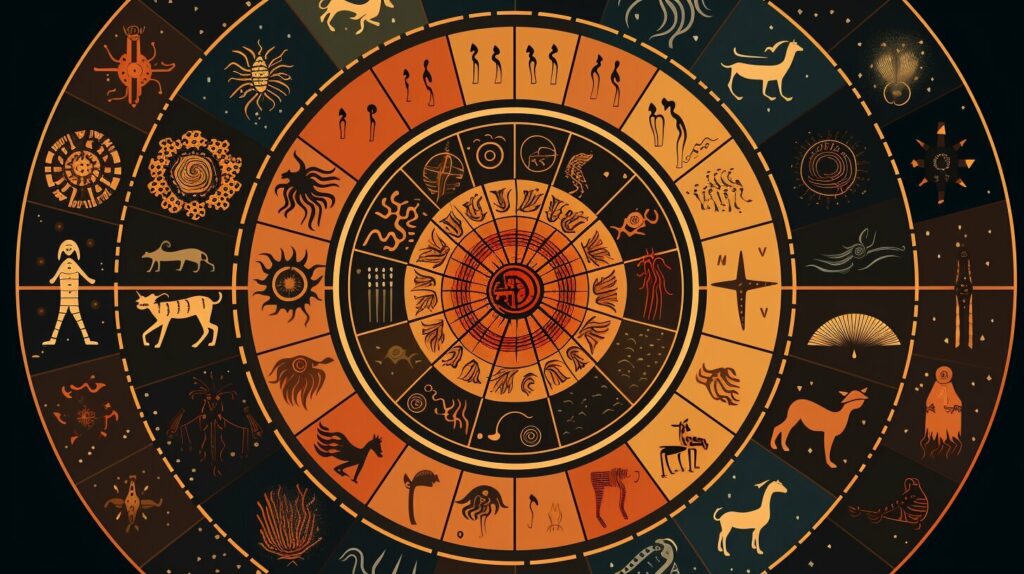 |
Growth, strength, and longevity |
| Wealth of Amber and Silver | Abundance, prosperity, and material wealth | |
| Family | Love, unity, and kinship | |
| Small Services to the Neighborhood | Community, generosity, and kindness | |
| Market | Trade, commerce, and entrepreneurship | |
| Ancestor | Wisdom, guidance, and ancestral connections | |
| Judge | Fairness, balance, and justice | |
| Kola Nut | Friendship, hospitality, and good fortune | |
| Traveler | Exploration, adventure, and curiosity | |
| Distance | Separation, growth, and personal boundaries | |
| Child of the Word | Intellect, learning, and communication | |
| Harvest in the Granary | Abundance, harvest, and spiritual nourishment |
These twelve signs represent different aspects of life and offer valuable insights into our personalities, strengths, and challenges. By understanding the symbolism associated with each sign, we can gain a deeper understanding of ourselves and the world around us.
Exploring African Astrology Interpretations
African astrology interpretations offer profound and accurate insights into an individual’s personality traits, future prospects, and spiritual growth, making it a valuable tool for self-discovery. This ancient divinatory system, derived from a technique called Geomancy, utilizes specific symbols and practices to provide guidance and wisdom. African astrologers, with their deep understanding of the symbolism and meanings behind the zodiac signs, play a crucial role in deciphering the intricacies of this unique form of astrology.
With the art of African astrology interpretation, individuals can gain a deeper understanding of their strengths, weaknesses, and life path. By analyzing the positions of the planets and the alignment of the zodiac signs at the time of one’s birth, African astrologers can offer insights into various aspects of one’s life, including career, relationships, and personal growth. The interpretations provided by these skilled practitioners enable individuals to navigate life’s challenges and make informed decisions that align with their true selves.
Furthermore, African astrology predictions are renowned for their accuracy and profound impact. Through the interpretation of celestial movements and the symbolism of the zodiac signs, African astrologers can make predictions about future events and potential outcomes. These predictions can serve as a guiding light, offering individuals a glimpse into what the future holds and helping them prepare for both opportunities and challenges that may come their way.
One of the key aspects of African astrology interpretation is its emphasis on spiritual growth. African astrologers recognize the interconnectedness of an individual’s spiritual journey with their physical existence. By examining the placement of zodiac signs in relation to specific body parts, African astrology offers insights into the spiritual aspects and potentials of an individual. This holistic approach to astrology allows individuals to cultivate a deeper connection with their inner selves and embark on a path of self-realization and enlightenment.
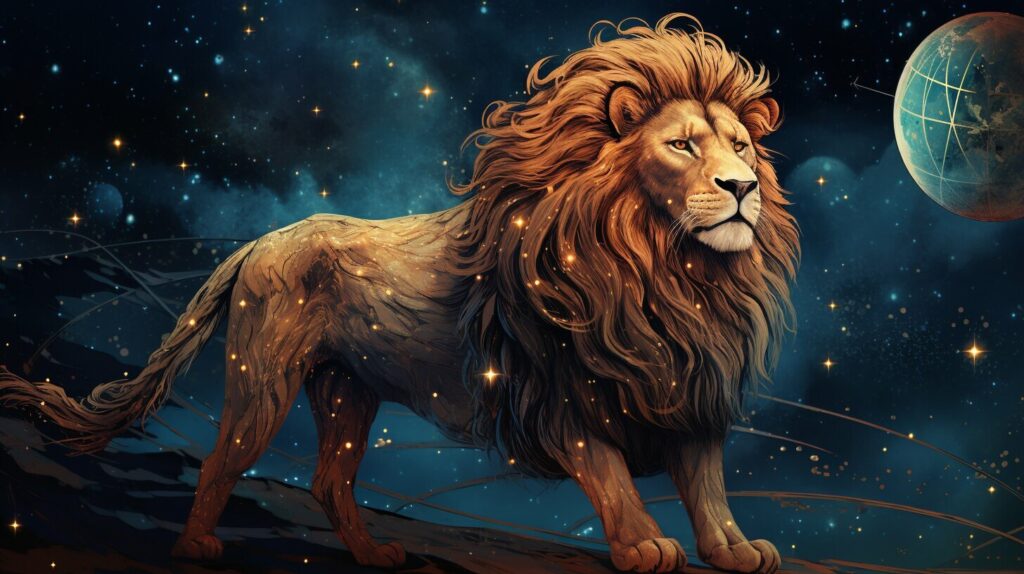
| Zodiac Sign | Element | Associated Dates | Associated Body Part |
|---|---|---|---|
| Baobab Tree | Earth | January 1 – January 19 | Feet |
| Wealth of Amber and Silver | Air | February 8 – March 17 | Lungs |
| Family | Air | April 4 – April 19 | Heart |
| Small Services to the Neighborhood | Air | May 18 – June 12 | Hands |
| Market | Earth | June 13 – July 9 | Throat |
| Ancestor | Earth | July 28 – August 16 | Eyes |
| Judge | Fire | August 17 – September 4 | Brain |
| Kola Nut | Fire | September 5 – October 14 | Stomach |
| Traveler | Water | October 15 – November 12 | Intestines |
| Distance | Water | November 25 – December 23 | Reproductive Organs |
| Child of the Word | Air | December 28 – December 31 | Spinal Cord |
| Harvest in the Granary | Earth | September 25 – October 3 | Nasal Cavity |
Unveiling the Twelve African Zodiac Signs
Each of the twelve African zodiac signs carries its own significance and embodies different aspects of African culture and spirituality, offering profound insights and guidance to individuals. From the majestic Baobab Tree to the nurturing Wealth of Amber and Silver, these signs form a rich tapestry that reflects the essence of African divination. Let’s explore the unique characteristics and importance of each sign in the African zodiac.
1. Baobab Tree (January 21 – February 17): Symbolizing strength and resilience, those born under this sign possess a deep connection to nature and are grounded in their beliefs. They are known for their wisdom and ability to provide guidance to others.
2. Wealth of Amber and Silver (February 18 – March 17): People born under this sign are associated with abundance and prosperity. They possess a magnetic charm, attracting opportunities for financial stability and material wealth.
3. Family (March 18 – April 14): Individuals born under this sign value the importance of family and community. They are nurturers, committed to creating harmonious relationships and providing support to their loved ones.
4. Small Services to the Neighborhood (April 15 – May 12): Those born under this sign are known for their selflessness and dedication to helping others. They find fulfillment in serving their communities and making a positive impact on society.
5. Market (May 13 – June 9): Representing creativity and communication, individuals born under this sign possess a natural talent for commerce and negotiation. They excel in business endeavors and thrive in social settings.
6. Ancestor (June 10 – July 7): Those born under this sign have a deep connection to their ancestral roots. They hold the wisdom and traditions of their ancestors close to their hearts, guiding their actions and decisions.
7. Judge (July 8 – August 4): People born under this sign possess a strong sense of justice and fairness. They have a natural ability to mediate conflicts and make sound judgments, earning the respect and admiration of those around them.
8. Kola Nut (August 5 – September 1): Symbolizing hospitality and friendship, individuals born under this sign are known for their warm and welcoming nature. They have a knack for building strong relationships and creating a sense of belonging.
9. Traveler (September 2 – September 29): Those born under this sign have a deep wanderlust and an adventurous spirit. They are constantly seeking new experiences and cultures, open to expanding their horizons and embracing diversity.
10. Distance (September 30 – October 27): Representing independence and self-reliance, individuals born under this sign value their personal space and autonomy. They thrive when given the freedom to pursue their individual passions.
11. Child of the Word (October 28 – November 24): People born under this sign possess a deep connection to knowledge and spirituality. They have a thirst for wisdom and are often drawn to intellectual pursuits.
12. Harvest in the Granary (November 25 – December 22): Symbolizing abundance and fertility, individuals born under this sign are blessed with a bountiful harvest. They are known for their generosity and their ability to bring prosperity and abundance to those around them.
| African Zodiac Sign | Significance | Embodiments |
|---|---|---|
| Baobab Tree | Strength and resilience | Nature, wisdom, guidance |
| Wealth of Amber and Silver | Abundance and prosperity | Charm, financial stability |
| Family | Importance of family and community | Nurturing, harmonious relationships |
| Small Services to the Neighborhood | Selflessness and dedication | Helping others, making an impact |
| Market | Creativity and communication | Business prowess, social skills |
| Ancestor | Connection to ancestral roots | Wisdom, traditions, guidance |
| Judge | Sense of justice and fairness | Mediation, sound judgments |
| Kola Nut | Hospitality and friendship | Warmth, relationships, belonging |
| Traveler | Wanderlust and adventure | Exploration, embracing diversity |
| Distance | Independence and self-reliance | Personal space, autonomy |
| Child of the Word | Connection to knowledge and spirituality | Wisdom, intellectual pursuits |
| Harvest in the Granary | Abundance and fertility | Generosity, prosperity |
As we unravel the mysteries of the African zodiac, we discover an exquisite tapestry of symbolism and wisdom. Each sign holds a unique place in the rich cultural fabric of Africa, offering individuals profound insights into themselves and the world around them. Whether you’re seeking guidance, self-knowledge, or simply an appreciation for the profound wisdom of this ancient divinatory system, African astrology has much to offer.
The Elements and Dates of African Astrology
The African zodiac signs are intricately connected to the four elements and are assigned specific dates and months, providing a comprehensive system to interpret and understand their influence. Each sign corresponds to one of the four elements – Earth, Air, Water, and Fire, which play a significant role in shaping the characteristics and traits associated with the signs. These elements provide a deeper understanding of the energy and essence each sign embodies.
To further enhance the interpretation of African astrology, specific dates and months are linked to each sign. This association allows individuals to identify their African zodiac sign based on their birthdate, adding a personal touch to their astrological journey. For example, those born between January 21st and February 19th fall under the sign of Baobab Tree, which represents strength, resilience, and stability.
The Elements and their Corresponding African Zodiac Signs:
| Element | African Zodiac Signs |
|---|---|
| Earth |
|
| Air |
|
| Water |
|
| Fire |
|
Understanding these connections between elements, dates, and African zodiac signs can provide valuable insights into one’s personality, behaviors, and spiritual inclinations. By delving into the world of African astrology, individuals can gain a deeper appreciation for the rich cultural heritage and ancient wisdom that this divinatory system offers.
The Body Parts and African Astrology Signs
In African astrology, each zodiac sign is linked to a specific body part, creating a unique way to delve into the physical and spiritual aspects of individuals. This ancient divinatory system recognizes the intricate connection between the human body and the energies represented by the twelve African zodiac signs. Understanding this correlation provides valuable insights into our physical well-being and spiritual growth.
Let’s explore this fascinating connection between the body and astrology signs:
The Baobab Tree sign is associated with the head, representing wisdom and knowledge. It signifies a strong connection to ancestral wisdom and the ability to think critically.
The Wealth of Amber and Silver sign is linked to the throat, symbolizing effective communication and self-expression. People born under this sign are known for their eloquence and persuasive abilities.
The Family sign is connected to the chest, representing the heart and emotions. This sign emphasizes the importance of family bonds and nurturing relationships.
By understanding the relationship between our bodies and these astrology signs, we gain deeper insights into our physical strengths and weaknesses. It enables us to align our actions and choices with the energies associated with each sign, leading to a greater sense of balance and well-being.
African Astrology and the Balance of Mind, Body, and Spirit
Exploring the connection between our bodies and African astrology signs not only helps us understand our physical well-being but also encourages the harmonization of mind, body, and spirit. This holistic approach to astrology recognizes that true harmony is achieved when all aspects of our being are aligned.
By focusing on the specific body parts associated with our astrology signs, we can direct our attention and self-care practices towards those areas. This facilitates a deeper understanding of our physical strengths and weaknesses, allowing us to make informed decisions and embrace a balanced lifestyle.
African Astrology and Self-Knowledge
African astrology serves as a powerful tool for individuals to gain self-knowledge, identify their strengths and weaknesses, and foster meaningful connections with others through compatibility assessments. Derived from a divinatory technique called Geomancy, African astrology uses three bones and a twelve-point system representing the signs of the African zodiac. Each sign corresponds to one of the four elements – earth, air, fire, and water – and is associated with specific dates, months, and body parts.
The twelve African zodiac signs – Baobab Tree, Wealth of Amber and Silver, Family, Small Services to the Neighborhood, Market, Ancestor, Judge, Kola Nut, Traveler, Distance, Child of the Word, and Harvest in the Granary – reflect different aspects of African culture and spirituality. By understanding the characteristics and symbolism of these signs, individuals can gain deeper insights into their own nature and the world around them.
Through compatibility assessments, African astrology helps individuals form harmonious relationships with others. The compatibility of two individuals is determined by analyzing the traits and qualities associated with their respective zodiac signs. This insight allows individuals to navigate relationships with a deeper understanding of their own needs and those of their partners, promoting greater compatibility and mutual growth.
Embracing African astrology as a means of self-discovery and connection can lead to personal growth and a deeper understanding of oneself and others. It offers a unique lens through which individuals can explore their inner world, uncover hidden potentials, and make informed decisions about their lives. Whether seeking answers about one’s purpose, relationships, or personal development, African astrology provides a rich tapestry of wisdom to guide individuals on their spiritual journey.
Explore the African Zodiac Signs:
| Sign | Element | Date Range | Associated Body Part |
|---|---|---|---|
| Baobab Tree | Earth | January 1 – January 19 | Head |
| Wealth of Amber and Silver | Water | January 20 – February 18 | Neck |
| Family | Air | February 19 – March 20 | Shoulders |
| Small Services to the Neighborhood | Earth | March 21 – April 19 | Arms |
| Market | Water | April 20 – May 20 | Hands |
| Ancestor | Fire | May 21 – June 20 | Chest |
| Judge | Earth | June 21 – July 22 | Stomach |
| Kola Nut | Air | July 23 – August 22 | Back |
| Traveler | Water | August 23 – September 22 | Hips |
| Distance | Fire | September 23 – October 22 | Legs |
| Child of the Word | Earth | October 23 – November 21 | Feet |
| Harvest in the Granary | Fire | November 22 – December 31 | Bones |
Incorporating the wisdom of African astrology into our lives can lead to a deeper understanding of ourselves, our connections with others, and our place in the world. By exploring the rich symbolism of the African zodiac signs and embracing compatibility assessments, we can embark on a transformative journey of self-discovery, personal growth, and meaningful relationships. Let African astrology guide you on the path to self-knowledge and a more fulfilling life.
The Ancient Origins of African Astrology
African astrology boasts a rich history rooted in deep cultural traditions, making it the oldest known form of astrology, and its wisdom continues to be cherished by African astrologers and enthusiasts worldwide. This ancient divinatory system finds its origins in a technique called Geomancy, which involves the use of three bones to interpret the signs of the African zodiac. These signs form a twelve-point system that corresponds to the four elements and offers profound insights into the human experience.
The twelve African zodiac signs are Baobab Tree, Wealth of Amber and Silver, Family, Small Services to the Neighborhood, Market, Ancestor, Judge, Kola Nut, Traveler, Distance, Child of the Word, and Harvest in the Granary. Each sign carries unique characteristics and symbolism, reflecting different aspects of African culture and spirituality. For example, the Baobab Tree represents strength and resilience, while the Judge signifies justice and fairness.
Furthermore, African astrology associates specific dates, months, and body parts with each zodiac sign. This correlation allows individuals to gain a deeper understanding of themselves and their place in the world. By exploring the symbolism and interpretations of their African zodiac sign, individuals can embark on a profound journey of self-discovery and self-knowledge.
| African Zodiac Sign | Element | Date Range | Associated Body Part |
|---|---|---|---|
| Baobab Tree | Earth | January 7 – February 3 | Legs |
| Wealth of Amber and Silver | Water | February 4 – March 2 | Throat |
| Family | Fire | March 3 – March 30 | Head |
| Small Services to the Neighborhood | Earth | March 31 – May 5 | Eyes |
| Market | Water | May 6 – June 3 | Arms |
| Ancestor | Fire | June 4 – July 1 | Feet |
| Judge | Earth | July 2 – August 5 | Hip |
| Kola Nut | Water | August 6 – September 3 | Hands |
| Traveler | Fire | September 4 – October 1 | Stomach |
| Distance | Earth | October 2 – November 5 | Back |
| Child of the Word | Water | November 6 – December 4 | Chest |
| Harvest in the Granary | Fire | December 5 – January 6 | Abdomen |
Through the wisdom of African astrology, individuals can uncover profound insights about themselves and their path in life. This ancient divinatory system offers guidance, self-reflection, and a deeper connection to African culture and spirituality. By embracing African astrology, we can embark on a journey of self-discovery and gain a better understanding of our inner selves.
Conclusion
African astrology offers a profound and timeless wisdom that can empower individuals on their spiritual journey, providing guidance, self-knowledge, and a deeper connection to the rich tapestry of African culture and spirituality.
Derived from the ancient divinatory technique called Geomancy, African astrology uses three bones to form a twelve-point system representing the signs of the African zodiac. Each sign corresponds to one of the four elements and is associated with specific dates, months, and even body parts. The twelve signs, such as the Baobab Tree, Wealth of Amber and Silver, and Harvest in the Granary, reflect different aspects of African culture and spirituality.
Believed to be the oldest known type of astrology, African astrology holds a deep significance in understanding oneself. By exploring the interpretation of African zodiac signs, individuals can gain valuable self-knowledge and a deeper understanding of their inner selves. African astrologers, with their accuracy and insightful predictions, play a crucial role in guiding individuals on their path.
Embracing African astrology allows one to tap into the wisdom of generations past and discover the transformative power it holds. It enables individuals to navigate life’s challenges with a sense of purpose and connect to their roots. Whether seeking compatibility in relationships or insight into personal traits, African astrology provides a unique and holistic approach to self-discovery.
FAQ
Q: What is African astrology?
A: African astrology is a divinatory technique derived from Geomancy, which uses a twelve-point system representing the signs of the African zodiac. It is believed to be the oldest known type of astrology and helps individuals gain self-knowledge and understand their inner selves.
Q: How are the African zodiac signs determined?
A: The African zodiac signs are determined based on specific dates, months, and body parts associated with each sign. They reflect different aspects of African culture and spirituality.
Q: What are the twelve African zodiac signs?
A: The twelve African zodiac signs are Baobab Tree, Wealth of Amber and Silver, Family, Small Services to the Neighborhood, Market, Ancestor, Judge, Kola Nut, Traveler, Distance, Child of the Word, and Harvest in the Granary. Each sign has its own unique characteristics and significance.
Q: How can African astrology help with self-knowledge?
A: African astrology provides insights into one’s inner self and helps individuals gain self-knowledge. By understanding their African zodiac sign, people can uncover their strengths, weaknesses, and unique qualities.
Q: Are African astrology predictions accurate?
A: African astrology predictions are known for their accuracy and insightful nature. African astrologers have mastered the art of interpretation and can provide valuable guidance and predictions.
Q: How can I determine my African zodiac sign?
A: To determine your African zodiac sign, you can refer to an African astrology chart that matches your birth date with the corresponding sign. This will help you discover your specific African zodiac sign and its associated characteristics.
Q: What is the significance of the elements in African astrology?
A: The elements in African astrology (earth, air, fire, and water) are associated with the African zodiac signs. Each element represents different qualities and energies that influence the characteristics of individuals born under specific signs.
Q: How does African astrology relate to body parts?
A: African astrology associates specific body parts with each zodiac sign. This connection offers deeper insights into the physical and spiritual aspects of individuals, enhancing the understanding of their unique qualities.
Q: Can African astrology be used for compatibility in relationships?
A: Yes, African astrology can be used for compatibility in relationships. By comparing the African zodiac signs of both individuals, insights can be gained into their compatibility and potential areas of harmony or challenges.
Q: Why is African astrology considered the oldest type of astrology?
A: African astrology is considered the oldest type of astrology because of its ancient origins and enduring wisdom. It has been practiced for centuries and has been passed down through generations, making it an integral part of African culture and spirituality.
- Unveiling the Truth: Are Scorpio and Pisces Soulmates? - January 13, 2024
- Understanding What a Pisces Man Dislikes in a Woman - January 12, 2024
- Unveiling Artists with Pisces Moon: Astrology Meets Artistry - January 11, 2024
